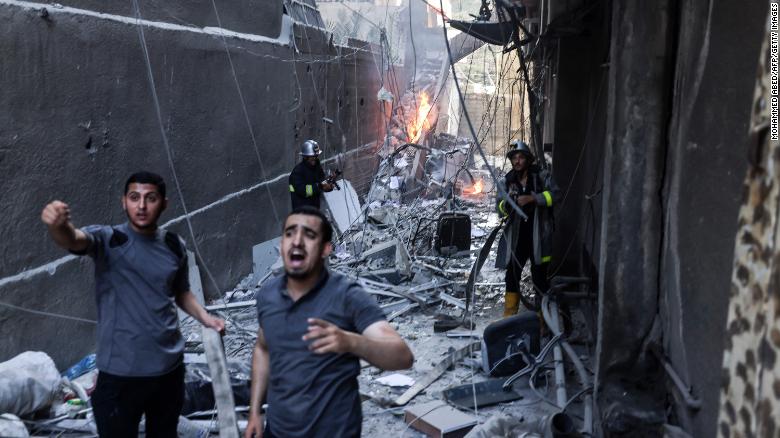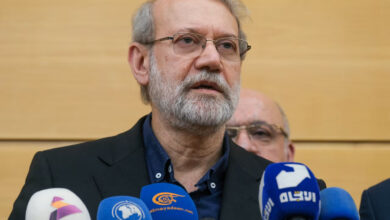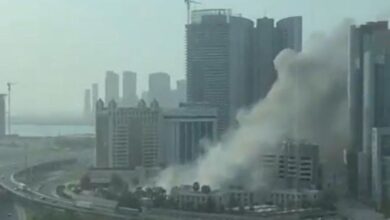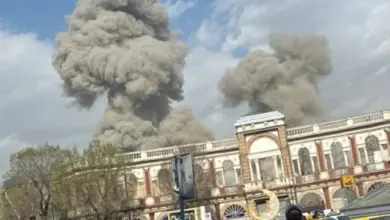
Jerusalem and Gaza (CNN) – The Israeli military campaign against Islamic Jihad went into its second day Saturday evening with continued airstrikes on what it said were militant targets in Gaza.
Twenty-nine people have been killed in the escalation, among them several children, including a five-year-old girl, Alaa Qadoum, who was among those killed in the initial Israeli airstrikes on Friday, and two women, aged 23 and 79, according to information from the Palestinian Ministry of Health. Israel says most of those killed in airstrikes were militants.
In one incident Saturday, four children were among seven people killed in an explosion in Jabaliya. The Palestinian Health Ministry initially said the blast was caused by an Israeli airstrike. Israel rejected the claim and said it was the result of errant rocket fire, and released a video showing what it said was the Islamic Jihad rocket sharply changing course in the air and hitting the building.
Islamic Jihad, which is the smaller of the two main militant groups in Gaza, has responded to the Israeli campaign with sustained rocket attacks, mainly launched toward Israeli communities living close to the Gaza Strip, but also firing several longer-range rockets.
Warning sirens on Saturday could be heard as far away as Modiin, about halfway between Tel Aviv and Jerusalem, and about 70 kilometers from Gaza.
By Saturday evening, the Israeli army said more than 450 rockets and mortars had been launched from Gaza. Almost 30% had landed inside Gaza, the army said.
Most of the rest were intercepted by the Iron Dome aerial defense system, though one rocket hit a high-rise apartment building in Sderot.
Two Israeli soldiers received minor injuries when a mortar shell exploded close to the Gaza fence, the army said. Israeli emergency services said they treated 21 people for their injuries, including two with minor injuries caused by shrapnel.
The United Nations has said it is “gravely concerned” by the fighting and appealed to both sides for an immediate de-escalation, warning it was regular civilians who would bear the brunt if it continued.
The United Arab Emirates mission to the United Nations, along with France, Ireland, Norway, and China, requested “a closed-door meeting” of the Security Council on Monday to discuss the developments in Gaza.
A Palestinian Health Ministry official told CNN they were seeing shortages in medical supplies, adding hospitals were coming under strain due to electricity outages caused by shrinking fuel stocks.
Gaza has only one power plant and Israel controls the entry of fuel into the territory. An Israeli army spokesman, speaking to journalists on Friday, said a fuel shipment had been due to enter Gaza, but the transfer had been scrapped when the military operation against Islamic Jihad began.
The UN, through its regional humanitarian coordinator, Lynn Hastings, urged Israel to open the crossings it controls, to allow people and goods to move in and out: “Movement and access of humanitarian personnel, for critical medical cases, and for essential goods, including food and fuel into Gaza, must not be impeded so that humanitarian needs can be met.”
The violence, which is the most serious in the region since the Israeli military and Hamas fought an 11-day war in May 2021, began Friday afternoon when Israel launched what it characterized as a preemptive strike against an Islamic Jihad commander, Tayseer Al Jabari.
The opening salvos of Israel’s operation, which it has called Breaking Dawn, also included hits on two anti-tank squads, which Israel said were about to launch an attack on its forces close to the Gaza fence.
Since then, the Israeli military says it has hit dozens of additional targets including rocket launching sites, weapons manufacturing facilities and military posts.
Statements from Israeli leaders continue to single out Islamic Jihad as the focus of the campaign, which the Israeli military says it extended into the West Bank overnight detaining 19 suspected militants from locations across the territory.
Israeli Prime Minister Yair Lapid, in comments made in English, highlighted Iran Friday night, saying, “Our fight is not with the people of Gaza. Islamic Jihad is an Iranian proxy, that wants to destroy the State of Israel and kill innocent Israelis … We will do whatever it takes to defend our people.”
The Palestinian Authority, which runs parts of the West Bank but has only a limited presence in Gaza, has condemned Israel’s action and said the international community should “compel Israel to stop this aggression.”
Hamas, the preeminent Palestinian faction in Gaza, also blamed Israel for the escalation but has been notably restrained in its response overall, stopping short of threatening attacks in retaliation. Instead, statements have emphasized Hamas leader Ismail Haniyeh’s phone calls with international mediators like Egypt and Qatar aimed at ending hostilities.
Friday’s strikes come after Israeli forces captured a senior Islamic Jihad commander, Bassam al-Saadi, during a raid on Monday night in the occupied West Bank town of Jenin.
During the operation, a 17-year-old Palestinian linked to Islamic Jihad was shot dead in an exchange of gunfire with Israeli soldiers, according to the Israeli military. The Palestinian health ministry said he had been shot in the head by Israeli forces.
Saadi was one of two wanted terror suspects apprehended in the raid, Israel said. The Quds Brigade, the armed wing of Islamic Jihad, said it was mobilizing its forces across the Palestinian territories in response; comments Israel says prompted its current operation.
Ibrahim Dahman in Gaza, Abeer Salman and Amir Tal in Jerusalem, and Neri Zilber in Sderot contributed to this report.




